CPR Skills Put to the Ultimate Test: When a Colleague's Quick Thinking and Brave Action Saved a Life
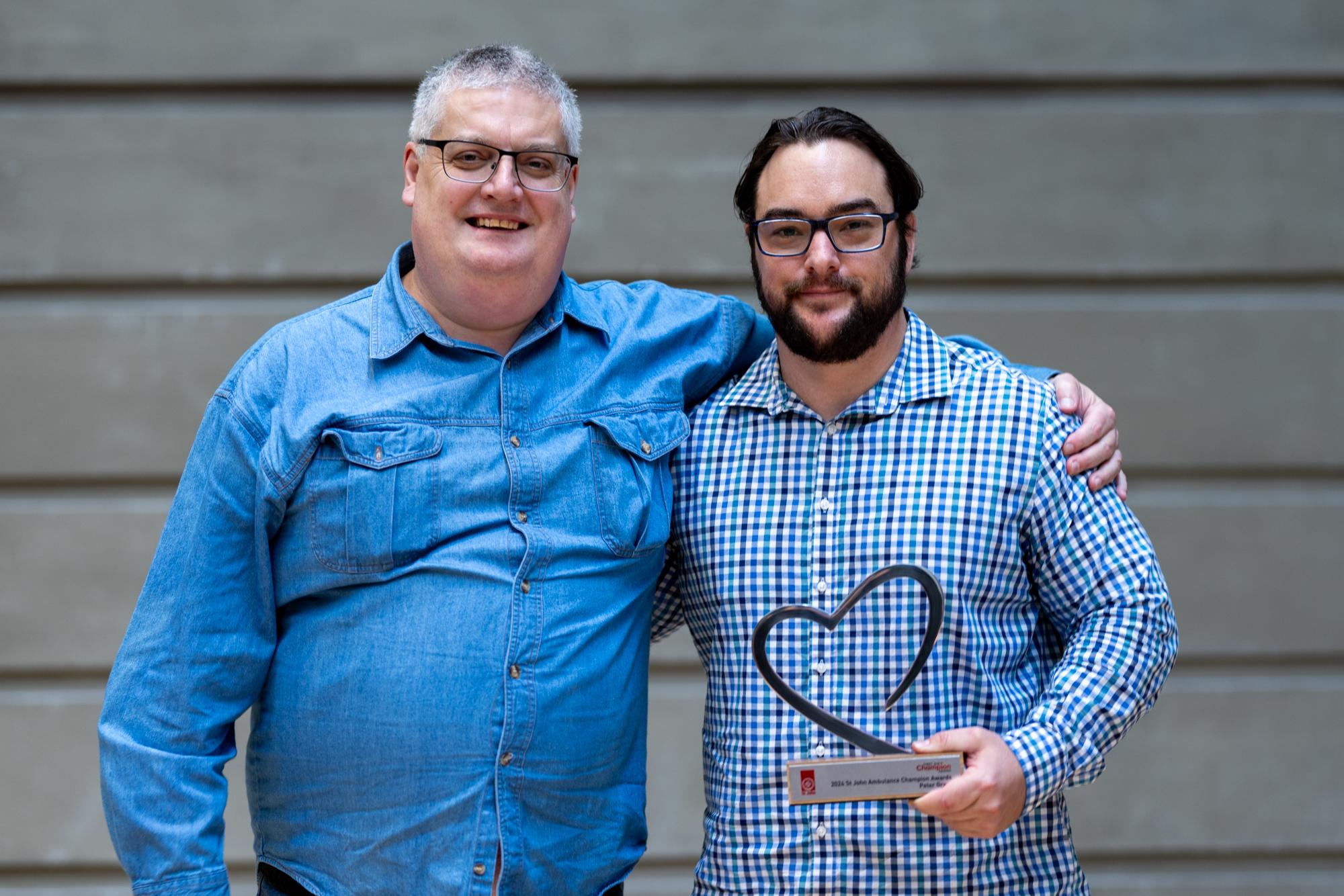
In a remarkable demonstration of bravery, Peter’s quick thinking and use of CPR skills have led to a life saved and a story of resilience. It was just an average day at work, and Peter was engaged in a conversation with his colleague Ian, when the incident unfolded. Ian suddenly suffered a major cardiac arrest. “On the day of the incident, I was in the office with Ian when he had a spell. There were no warning signs, so mid-sentence Ian basically had a spell. His eyes rolled back to his head and that was it. I just assumed it was a heart attack and pretty much went straight into doing CPR.” - explained Peter.
Without a moment of hesitation, Peter jumped into action. He immediately began administering CPR and promptly called 000 for emergency assistance. Despite his best efforts, the initial rounds of CPR were not bringing any results. However, Peter’s determination did not shake. Recognising the urgency, he quickly used a defibrillator just as the ambulance arrived on the scene. “That situation can be quite stressful. When I was performing CPR, a few things ran through my mind because Ian is a father of five. So, it’s like, you know, I can’t let this guy go. He’s got five kids to take care of.” – adds Peter.
“The next thing I remember was waking up on the floor, bouncing around; Peter’s over me, sweat pouring off him, saying ‘don’t worry; we will look after you.” - says Ian.
Peter’s decisive actions were instrumental in ensuring Ian’s survival. Thanks to Peter’s intervention, Ian spent only a few days in the Intensive Care Unit (ICU) and is now back at work, making a full recovery. This heartening outcome is particularly touching as Peter had attended a St John Ambulance CPR course with Ian just a year prior. The training they both received proved invaluable, and Peter’s skills were put to the ultimate test, successfully, for the second time. “I would say that learning first aid and CPR is very important. Timing matters, so the sooner you can get on to any situation, be it bleeding, breathing, or a heart condition, seconds count. I take him wherever I go now, just as a friend, but also as an insurance policy.” – says Ian.
This incident highlights the vital importance of CPR training. Remarkably, 42% of Australians would not feel comfortable performing CPR if needed. Peter is an outstanding example of the 58% who are ready and willing to act in critical moments. His willingness to use his CPR skills saved a life, emphasising the impact of being prepared and trained.
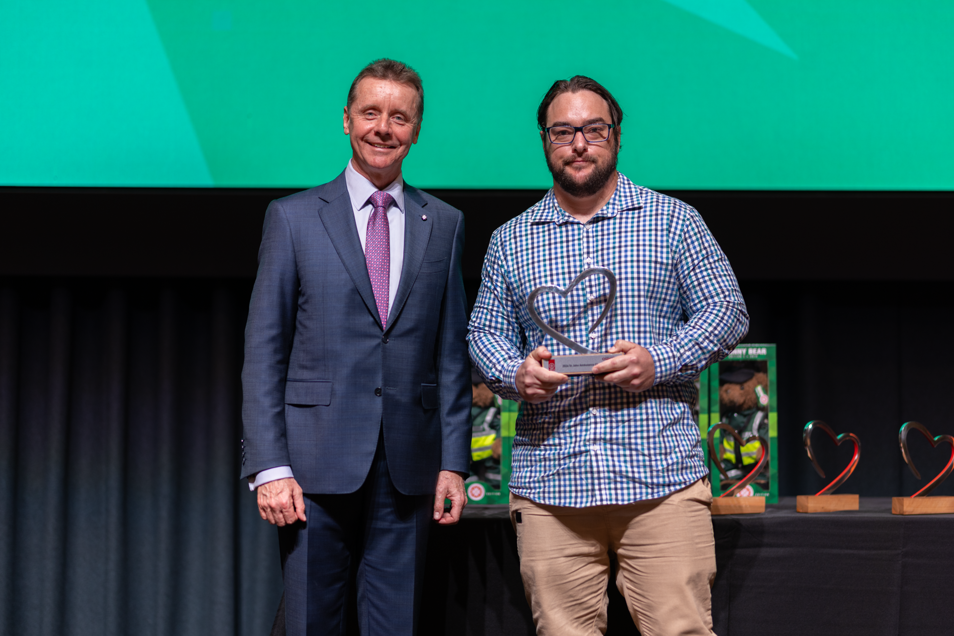
Peter was one of the 14 people who were recently celebrated during our First Aid Champion Awards 2024 and proudly accepted his award during the event.
We extend our heartfelt congratulations to Peter for his heroic actions and amazing commitment. Your bravery and expertise have made a significant difference, and we are grateful for your dedication to life-saving practices.
Watch their interview here:
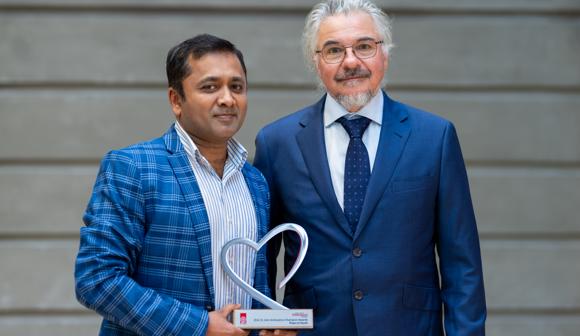
How Raj’s Quick Thinking Saved a Life
In a time of crisis, knowing how to act quickly can make all the difference. Yet, despite the vital importance of defibrillators in saving lives, less than half of Victorians are familiar with how to use them.
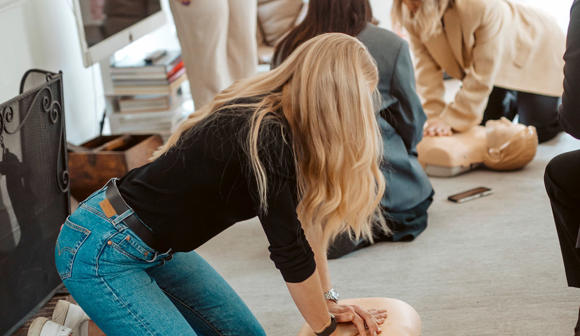
HLTAID009 Provide cardiopulmonary resuscitation
This unit describes the skills and knowledge required to perform cardiopulmonary resuscitation (CPR) in line with the Australian Resuscitation Council (ARC) guidelines.
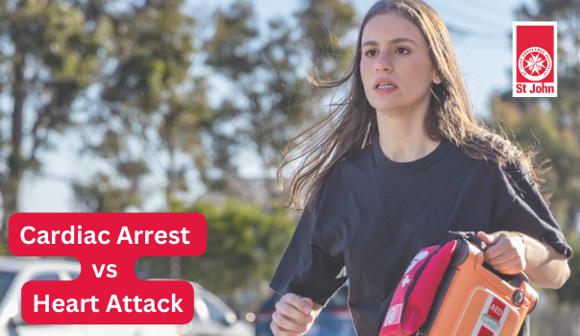
the Difference Between a Heart Attack and Sudden Cardiac Arrest
Until it happens to us or someone we love, most of us don’t know the difference between a heart attack and a sudden cardiac arrest. Many assume that "heart attack" and "sudden cardiac arrest" are interchangeable terms.
